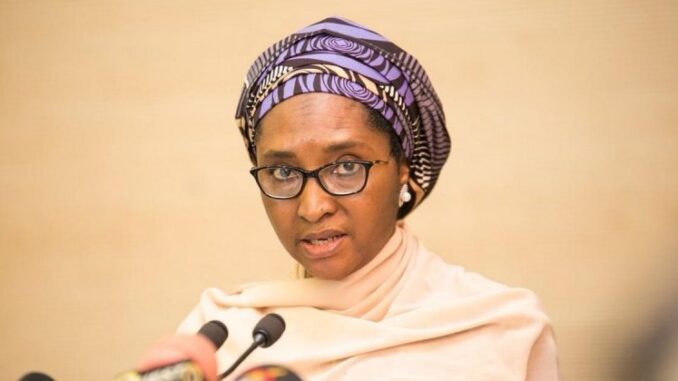
Nigeria’s latest impressive economic growth would have been better if the country had been more secure, the finance minister, Zainab Ahmed, has said.
Mrs Ahmed said save for the country’s spate of insecurity that has affected growth in agriculture, the gross domestic product was bound to grow higher than 5.01 per cent recorded in the second quarter, as announced last week by the National Bureau of Statistics. The quarterly economic growth was the strongest in years.
“The 2021 second-quarter growth reflects better economic performance compared to the same quarter last year. The same quarter last year we had negative growth of -6.10 per cent. It is also better than the first quarter of 2021,” Mrs Ahmed told journalists at a press briefing where she reviewed the latest results from the NBS.
“The service sector recorded a strong performance, growing by 9.27 per cent this reporting quarter – representing the fastest growth in this sector since 2010.
“The second-quarter growth of 2021 would have been much stronger than the 5.01 percent, but for agriculture, that recorded a slightly lower growth. A number of bottlenecks within the system, including insecurity, negatively affected the sector. Also, the industrial sector slowed down to -1.3 percent.”
The Nigerian economy went into recession in 2020, the second in four years as it suffered the impact of the coronavirus pandemic. Attacks by the Boko Haram jihadists and the so-called bandits have driven farmers from their fields, pushing food prices and headline inflation to the highest levels in decades.
Mrs Ahmed said borrowings by the government to finance critical projects amid dwindling revenue have so far been done “sensibly.”
According to data from the nation’s Debt Management Office, Nigeria’s public debt stock stood at N33.107 trillion by March 2021, a reason many analysts have expressed concerns about debt accumulation.
Last week, the House of Representatives criticised the government’s decision to borrow N5.62 trillion to finance the deficit in the 2022 budget.
Mrs Ahmed however, said the borrowings are needed to tackle the problems of the revenue shortfall.
“I want to assure you that we are borrowing with very close consideration to the sustainability of the borrowing; the borrowing levels for Nigeria today is still 23 per cent of the GDP,” she said.
Bandits and Security Threats
“The problem we have in Nigeria is actually that of revenue; when you look at countries that are with the peer group of Nigeria, there are some that had 50percent growth and now they are at about 70 per cent.
“We are at 23 per cent despite the escalated borrowing we have had to do in 2020 and also in 2021 to get a good grip on the economic situation that was occasioned by the covid 19 pandemic and in our case also the crash in crude oil price.
“So we are borrowing sensibly, we are also borrowing to invest in critical infrastructure like power, water, roads and rail which are investment that are required to enhance business productivity in the country today.
“We have an approval in the 2021 budget to fund the budget deficit 50 per cent locally and 50 per cent externally. The 50 per cent external borrowing is 6.1 billion Euros; we are planning to use about half of that from Eurobonds and the other half using other windows such as multilateral and bilateral sources.”
END

Be the first to comment